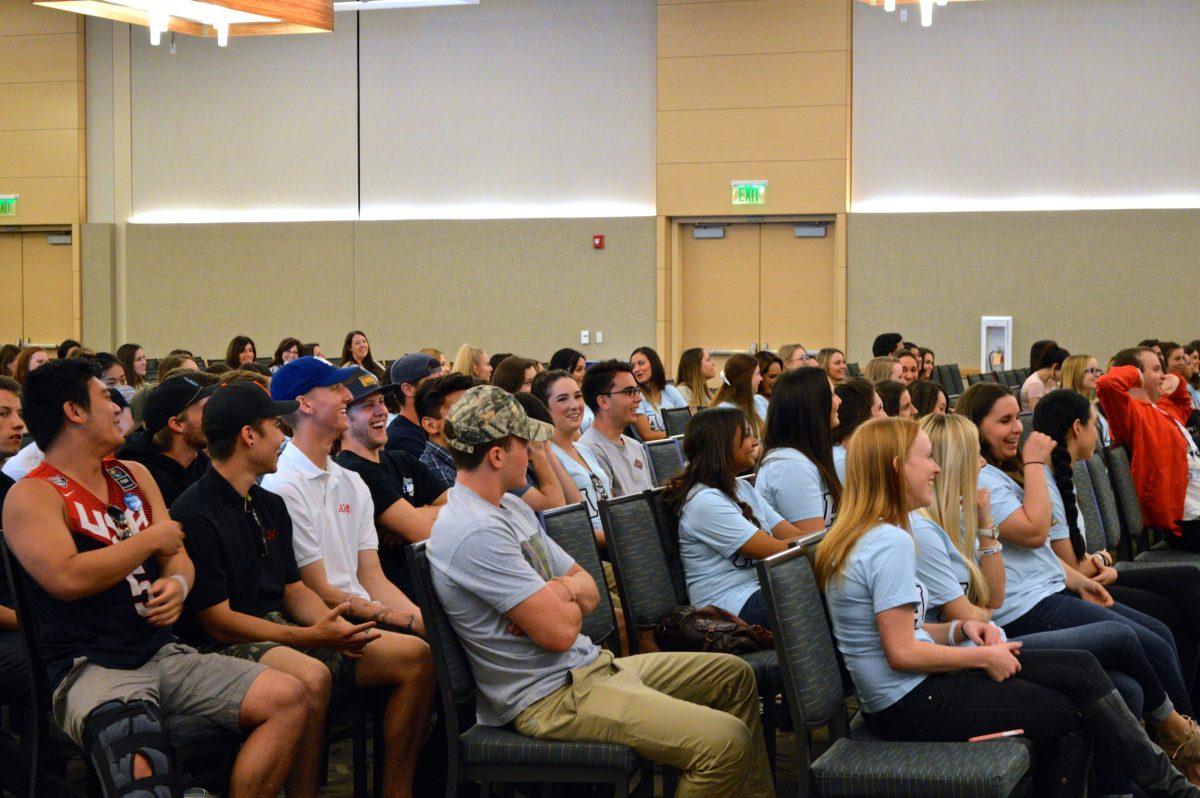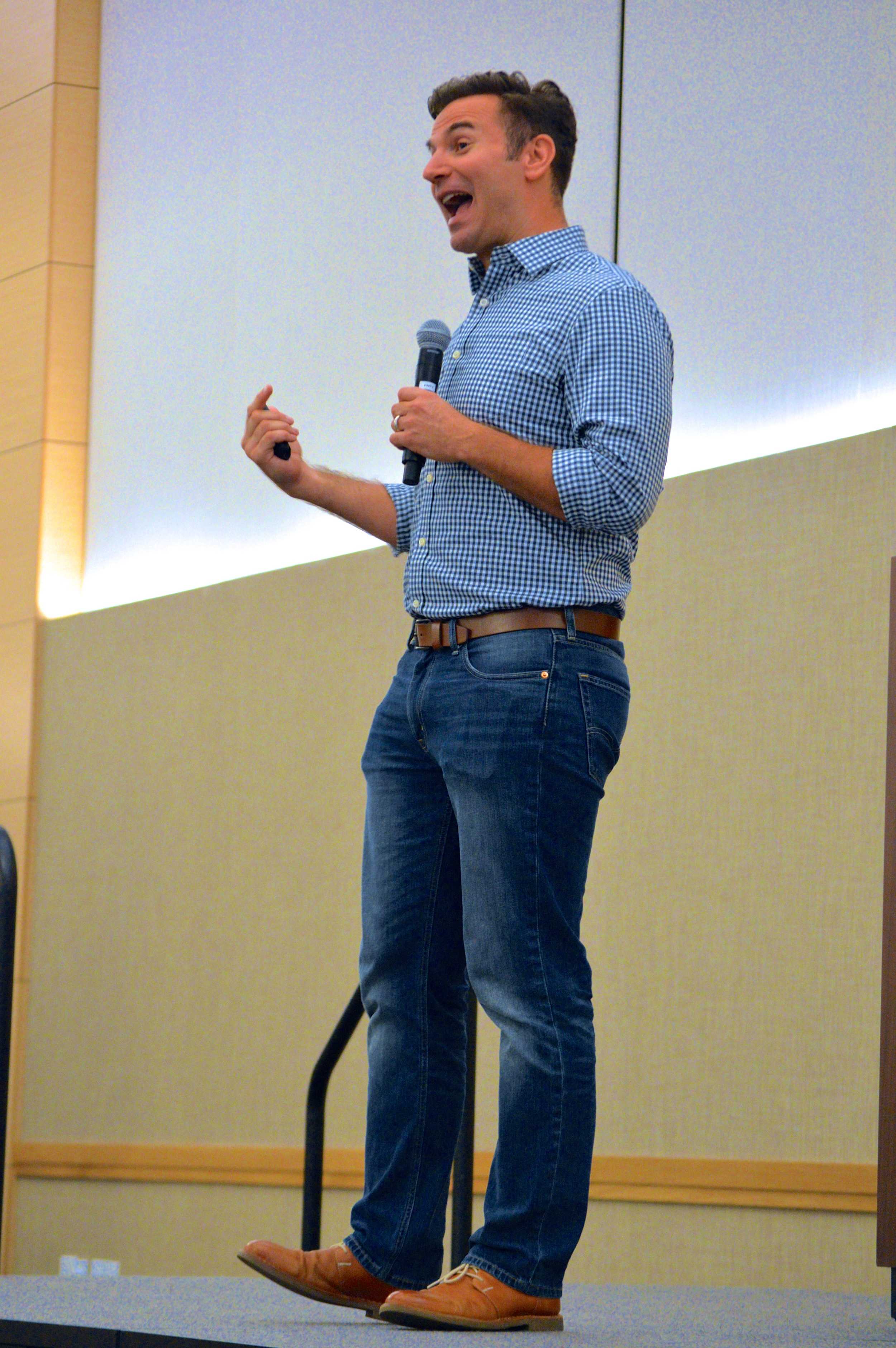Last Sunday, members of Alpha Delta Pi, as well as other students at Sonoma State University signed the oath to be ‘better than the binge.’
Their orginal speaker, Jake Byczkowski, was in a minor car accident on his way to the airport just 13 hours before the event. Byczkowski, with a minor concussion and stiches, was unable to come so Ross Szabo stepped in.
Szabo spoke about his personal story and how he struggled with mental health throughout his life.
“After being contacted on short notice after the other speaker couldn’t make it, [Szabo] did an amazing presentation,” said Alpha Delta Pi President Kelly Sullenberger. “He touched on a lot of things that I believe were great points that the other speaker wasn’t planning on talking about, so I’m glad he was able to come to our event.”
Szabo grew up in a small town in Pennsylvania where he was a star athlete and a member of many clubs and organizations while maintaining a 3.8 GPA. On the outside he looked like your all-american kid, but on the inside was another story. The majority of his talk consisted of the things that happen inside of one’s head. At the age of 13, Szabo began to drink and by the age of 16 he was binge drinking every night to the point of passing out. After consistant ups and downs, Szabo was diagnosed with bipolar disorder at the age of 16.
During his senior year of high school, he told the audience that he had constant thoughts of suicide until he finally attempted it one night after dinner with his basketball teammates.
After the attempt failed, he was in and out of hospitalization for the beginning years of his college career. It wasn’t until Szabo was 22 that he finally accepted that he had a problem.
Szabo talked about his struggle with substance abuse along with bipolar disorder growing up. He would drink 13 shots or more before even going out to a party and be so intoxicated when he got home that he would sleep for 22 hours at a time.
After Szabo opened the question to the audience about why people drink, it was came to the consensus it was because of nervousness. Social encounters, tests, relationships, future, lack of sleep and depression are all leading causes to binge drinking Szabo said. During his talk, Szabo explained how students might not realize the damages they are doing to their bodies.
He explained how people in interrogations are best broken down if they are only allowed to sleep three to five hours a night after which they start to become dellusional.
After Szabo asked how much sleep the audience got per night, the answer was about the same as the interrogation method he had just explained.
Szabo said lack of sleep leads to anxiety which could then lead to binge drinking. It becomes a problem once drinking steers away from fun to out of control he said.
Szabo said people think that once they get a diagnoses that all their problems go away, but they’re mistaken. Coping mechanisms are the building blocks to positive mental health and the core of Szabo’s presentation.
He explained that he would get four hours of sleep a night, become violent, have suicidal thoughts, binge drink and then pass out. It wasn’t until Szabo found positive coping mechanisms that he felt like his disorder was under control.
“I have spoken to millions of people about substance abuse but if there’s one thing I really want people to understand is that mental health is just as important as physical health,” said Szabo. “Creating positive coping mechanisms that you can practice and make a routine is the way I believe people can help themselves.”
To do that, Szabo said, people need to realize the reason why they abuse substances in order to help them change. Suicide is the second leading cause of death on college campuses yet only 66 percent of those students don’t seek help.
Continuing with his interactive speaking style, Szabo asked why that statistic is so high. Answers included students don’t seek help because they don’t want to feel humiliated or accept they have a problem.
Then it’s up to the individual to choose coping mechanisms that work best for them until they become automatic when traumatic events occur.
Playing an instrument, exercising, reading or listening to music are different mechanisms to choose, especially for college students, that could dealing with stress or a mental health issue a lot easier.




































